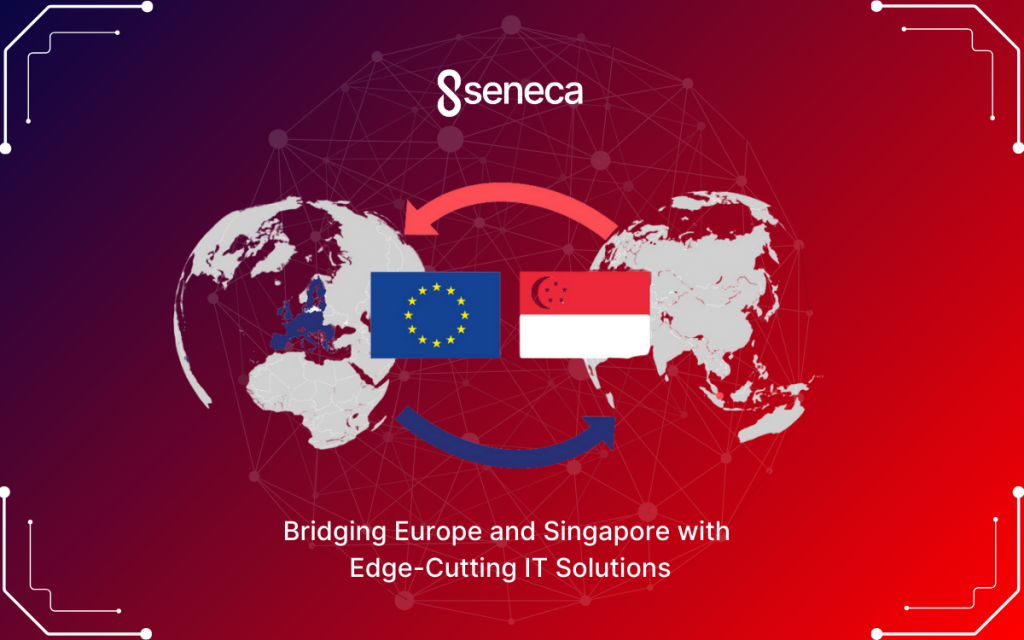EU and Singapore conclude negotiations for landmark Digital Trade Agreement
The EU and Singapore conclude a digital trade agreement, set to open a new frontier in global digital commerce. The European Union and Singapore have successfully completed negotiations on the first Digital Trade Agreement, marking a new epic in the evolution of global digital commerce. It constitutes a landmark accord for the EU, as it has been ambitious about setting the international standard for the rules of digital trade and cross-border data flow. The agreement will lay the foundations for new opportunities and bring the EU closer economically to Singapore, with digital trade at its core.

A Historic Agreement: Setting Global Standards
This very recent Digital Trade Agreement (DTA) between the EU and Singapore is going to lay the cornerstone for both inside the economic relationship, in competition with the already-existent 2019 EU-Singapore Free Trade Agreement. This DTA is more than just a trade agreement; it is a strategy by the EU to establish itself as a global reference in terms of the regulation of digital trade.
It aims to create binding rules, build consumer trust, bring legal certainty to business operators, and unlock new economic opportunities in a safe online environment. Valdis Dombrovskis, Executive Vice-President of the European Commission and Commissioner for Trade, said that “at a time when more than half of the EU trade in services is digital, it becomes imperative to build smart and modern rules for digital trade with our global partners.” The Singapore agreement is the first of its kind and will benefit both businesses and consumers, bringing our economies closer together while representing a significant step forward in the ambition of the EU being a global standard-setter in digital trade.
Key Provisions: Boosting Digital Trade
The DTA contains several important clauses that will dramatically boost digital trade between the EU and Singapore. Of course, chief among these are provisions that would permit the free, safe flow of data across borders. This is very much needed in the case of businesses whose operations involve constant data movement across borders, such as tech businesses, providers of financial services, and e-commerce platforms.
The agreement is also intended to set common standards for digital services, thus reducing the hustle for businesses to operate their services in either region. This involves such areas as cloud computing, digital payments, and other crucial components related to the modern digital economy. By setting such standards, the agreement wants to reduce barriers to entry for businesses and increase innovations across both regions.
Impact on Businesses and Consumers
Very significant is the EU-Singapore Digital Trade Agreement, especially for businesses operating in digital trade. The clear and predictable rules that the agreement will offer will surely reduce the general and regulatory uncertainties that have always followed digital cross-border transactions. This is significant for SMEs, which sometimes find the details of regulations hard to operate with.
This will further enhance the opportunity that businesses, either from the European Union or Singapore, will have to be more competitive in expanding across the two markets. A company will have an easier time putting its digital services in place across borders because regulation is lower, and thus, the issue of high barriers to entry should foster innovation and competition.
A Catalyst for Global Digital Trade
The EU-Singapore Digital Trade Agreement does much more than serve as a bilateral deal; it drives the proliferation of digital trade agreements internationally. The EU is the world’s leading importer and exporter of digitally deliverable services. For example, the data showed that as of 2022, some 55% of the EU’s total services trade, worth over €1.3 trillion, happened digitally.
This is meant to be an addition to the EU’s efforts towards reaching as many state-of-the-art digital trade rules as possible with their other global partners, and this agreement with Singapore goes in that direction. Singapore, a top innovation and technology hub in Southeast Asia, is therefore the ideal partner of the EU in this regard.
Next Steps: Implementation Following the conclusion of negotiations
The EU and Singapore will now proceed with the necessary internal processes for the formal signing and conclusion of the agreement. This will be after ratification by the relevant authorities in the two regions, after which the agreement comes into effect.
Given that the world is watching with keen interest the implementation of this historic deal, it will be pertinent to keep an eye on the impact the deal has on digital trade between the EU and Singapore. The DTA really moves the needle in terms of where global trade is headed, and its success could have huge ramifications for the future of digital commerce.
Conclusion: A New Chapter for Digital Trade
The EU-Singapore Digital Trade Agreement does bring forward new standards for digital trade and assures that both companies and consumers will have the opportunity to work within the boundaries of a safe and predictable environment, ensuring an increase in growth, innovation, and competition. As other nations and regions consider analogous agreements, the DTA between the EU and Singapore may shape the future of global digital trade.
Related Articles

Dec 09, 2025
Read more
Everyone Is Training a ‘Proxy Model’: The 2026 Tech Trend Nobody Is Talking About
Discover why AI proxy models are set to reshape tech in 2026 and how companies are quietly racing to use them.

Dec 02, 2025
Read more
How Bot-to-Bot Commerce Is Quietly Changing Retail
Bot-to-bot commerce is changing retail, letting software negotiate deals and optimize pricing across digital marketplaces.

Nov 25, 2025
Read more
Why Aging Tech Puts Everyone at Risk
Aging infrastructure risk leaves networks exposed. Learn how to secure legacy systems and prevent threats.

Nov 18, 2025
Read more
The Future of Gaming: How AI and Technology Are Changing Play
Explore the future of gaming, from AI-driven worlds to VR and cloud tech, and see how players and developers will thrive in the next decade.

Nov 11, 2025
Read more
Navigating the AI Boom How Developers Can Thrive Amid the Hype
The AI boom is reshaping tech. Discover how developers can seize opportunities and stay ahead of the hype.

Oct 28, 2025
Read more
How AI Is Quietly Rewiring the Human Brain
AI and the human brain may be changing. Studies show frequent AI use can reshape how people think and remember.
